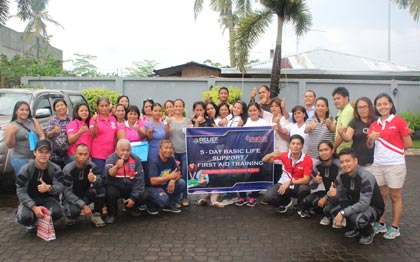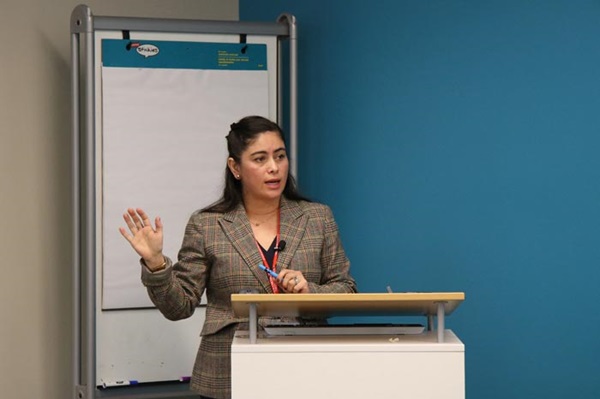The United Methodist Committee on Relief (UMCOR) has as its goal to alleviate suffering in communities. When a natural hazard, such as a tornado, hurricane, or earthquake, has churned into a disaster because of a community's vulnerability and lack of resources, UMCOR is grateful for the many people who help survivors recover some of their material goods. No one, though, can recover a life lost in a disaster. Losing someone close can generate permanent suffering.
"I am grateful for the knowledge about disaster risk reduction. This will help us greatly, as we are always beset by disasters. I learned that we need to be aware of weather updates and to be alert in times of emergencies. I learned about the hazards in our barangay (community) and what we can do," said Adelrita Ay-ay, a beneficiary of an UMCOR Disaster Risk Reduction grant in partnership with Relief International in the Philippines, January 2017.
Disaster risk reduction (DRR) is a process that seeks to avoid and alleviate suffering in proactive and long-lasting ways. This process helps communities identify their vulnerabilities and the resources needed to address them and thereby reduce or mitigate the negative impacts of hazards.
 |
| Basic Life Support and First Aid training participants, resource speakers, and Relief International-Philippines staff members at the November 2016 Disaster Risk Reduction training held in partnership with UMCOR. PHOTO: Relief International |
Adelrita Ay-ay is from Barangay 85, San Jose, Tacloban City, one of the communities hardest hit by Typhoon Haiyan in 2013. She knows now how vulnerable her community was during the storm. "We did not prepare for the incoming typhoon at the time, thinking that it was just one of those typhoons that visit us normally," Adelrita said in an interview with Relief International in the Philippines. "People were so used to having typhoons all the time that we only made minimal preparation."
Adelrita is a Barangay Nutrition Scholar (BNS) from her village. Barangay 85 was chosen to participate in Relief International's Urban Disaster Risk Reduction Project, which was offered in partnership with UMCOR. Although her family has had to relocate from the village, Adelrita takes with her the knowledge she learned and she will teach others about preparing in advance to reduce the risks and effects of devastating storms.
UMCOR works with communities around the world in disaster risk reduction programs that draw from these three strategies. It is vital to our shared life on Earth that we embrace, at the level of every community, the need to reverse patterns of imbalance, degradation, and lack of awareness.
Rapid and unplanned urbanization and environmental degradation are increasing the exposure of communities to hazards, and the effects of climate change are intensifying the hazards. Communities can't stop natural hazards from happening, but they can increase their resilience to disasters and, in that way, avoid or reduce the suffering generated by the impact of disasters.
Yovanna Troansky, manager for UMCOR's Disaster Risk Reduction, the General Board of Global Ministries.
One of six churchwide Special Sundays with offerings of The United Methodist Church, UMCOR Sunday calls United Methodists to share the goodness of life with those who hurt. Your gifts to UMCOR Sunday lay the foundation for the United Methodist Committee on Relief (UMCOR) to share God's love with communities everywhere. The special offering underwrites UMCOR's "costs of doing business." This helps UMCOR to keep the promise that 100 percent of any gift to a specific UMCOR project will go toward that project, not administrative costs.
When you give generously on UMCOR Sunday, you make a difference in the lives of people who hurt. Give now.





